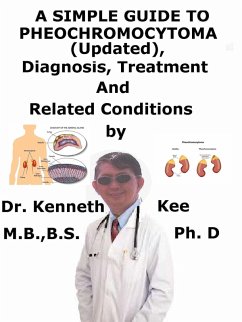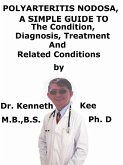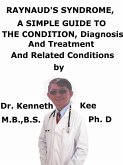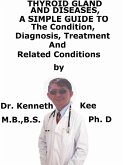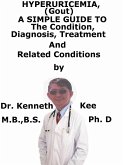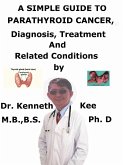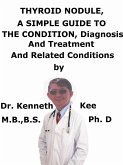Pheochromocytoma is an uncommon tumor of adrenal gland
Location of this adrenal tumor can be found by a MRI scan
Pheochromocytoma tends to secrete excessive catecholamines
This can cause a hypertensive crisis which is life threatening
Pheochromocytoma is usually caused by a genetic mutation
There is no sex difference or any particular racial predisposition
Catecholamines have effects on the heart rate, metabolism
Most patients have headache, tremors, sweating and palpitation
Diagnosis is also based on the increase in blood catecholamines
Other tests showed raised blood calcium and urine metanephrines
MRI an CAT scans will be able to the adrenal tumor location
Final diagnosis of pheochromocytoma is by biopsy examination
The treatment of choice for pheochromocytoma is surgical resection
Preoperative blood pressure and pulse must be stabilized with medication
If surgery is not advisable, medical treatment will control the excess hormones
Radiation treatment is not effective and therefore not performed
-An original poem by Kenneth Kee
Pheochromocytoma or "paraganglioma" is an infrequent adrenal gland medullar tumor in which there is excess production of the epinephrine (adrenaline).
Pheochromocytomas are tumors that form in the adrenal medulla, the inner part of the adrenal gland, which can induce overproduction of catecholamines.
Catecholamines are stimulating hormones such as epinephrine (adrenaline) and norepinephrine (noradrenaline) that are involved in the maintenance of blood pressure.
Excess of catecholamines produces high blood pressure in most of the patients.
Pheochromocytoma is a rare disease;
Of all patients with hypertension, less than one percent has adrenal tumors and the resulting hormone overproduction.
If left untreated, it can have serious consequences such as heart attack, stroke, and other life-threatening conditions.
85% of the tumors are benign.
The tumor may be large up to 15 cm or 6 inches in diameter.
It causes ill effects in the affected person by the secretion (intermittent or continuous) of excessive epinephrine and norepinephrine, hormones that has effects on the heart rate, metabolism, and blood pressure.
It happens in middle adult life around 40-50 years of age.
Its occurrence is slightly more frequent in females than in males.
In most cases, a pheochromocytoma is a single, benign tumor that happens in a patient without a family history of endocrine disorders.
A small proportion may be related to the pheochromocytoma's hereditary causes.
It normally starts forming in the medulla of one or both adrenal glands.
This tumor rarely appears outside the adrenal gland, normally somewhere else in the abdomen.
Typical symptoms may be high blood pressure and events of:
1. Severe headache
2. Sweating
3. Palpitations
The 3 major tests used to locate a pheochromocytoma are the CT scan, MRI scan, the meta-iodobenzylguanidine (MIBG) scan.
Provocative testing for fiagnosis can cause dangerous hypertensive episodes and are seldom done.
The treatment normally requires the removal of the tumor by surgery.
TABLE OF CONTENT
Introduction
Chapter 1 Pheochromocytoma (Updated)
Chapter 2 Causes
Chapter 3 Symptoms
Chapter 4 Diagnosis
Chapter 5 Treatment
Chapter 6 Prognosis
Chapter 7 Adrenal Fatigue (Updated)
Chapter 8 Life and Death of Adrenal Gland
Epilogue
Dieser Download kann aus rechtlichen Gründen nur mit Rechnungsadresse in A, B, CY, CZ, D, DK, EW, E, FIN, F, GR, H, IRL, I, LT, L, LR, M, NL, PL, P, R, S, SLO, SK ausgeliefert werden.

